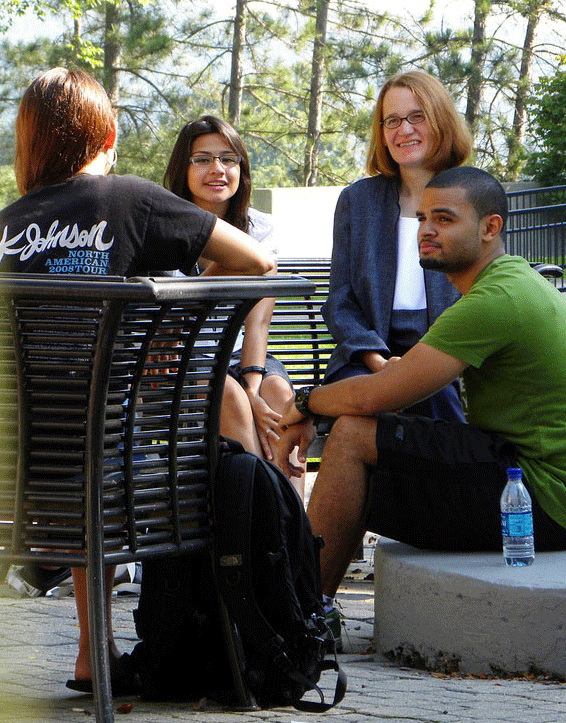2019-20 Undergraduate Catalog [Archived Catalog]
Philosophy Department
|
|
Andrew Fitz-Gibbon, chair
Old Main, Room 138
607-753-2727
Fax: 607-753-4114
cortland.edu/philosophy
School of Arts and Sciences

Faculty
Andrew Fitz-Gibbon, Nikolay Karkov, Mechthild Nagel, L. Sebastian Purcell
Adjunct Faculty
For a listing of adjunct faculty see the Faculty and Administration section.
Degree and Minors
Bachelor of Arts in Social Philosophy
Minor in Peace and Conflict Studies
Minor in Social Philosophy
Description
Philosophy is essentially an activity, rather than a fixed set of teachings. Philosophy cultivates the capacities and appetite for self-expression and reflection, for debate and exchange of ideas, and for reflecting on and puzzling over problems of living, being human and being part of a community. Philosophy prepares one for the tasks of citizenship, for participation in political and community affairs and for responsible and intelligent engagement in public life. This department's unique major (and minor) in social philosophy is meant to instill these skills. As such, it is a valuable tool and indeed the very paradigm of a liberal arts education major.
Special Features
- Unique program in social philosophy — one of only two in the SUNY system
- Small department allows close interaction with faculty
- Philosophy majors perform exceptionally well on the Law School Admissions Test (LSAT) and the Graduate Record Exam (GRE)
- Cortland students who have graduated with a philosophy degree have gone on to widely varied careers — law school, human services, business, journalism, graduate study in philosophy, etc.
- Philosophy majors do better than the average liberal arts students at obtaining jobs after graduation — a surprise to many people who think of philosophy as impractical.
Requirements
- Degree requirements listed in this catalog apply to all of the majors offered by this department.
- Liberal Arts Requirements: 90 credit hours
ProgramsMajorMinorCoursesPhilosophyReligious Studies
|